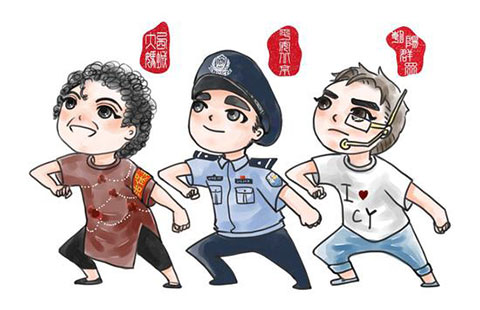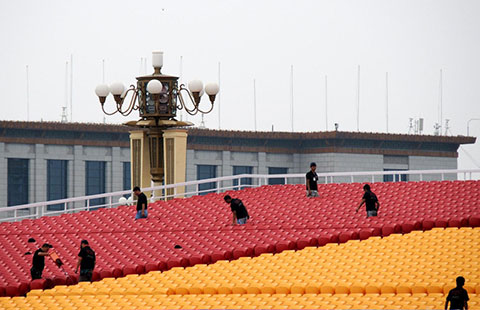Thucydides Trap not etched in stone
Updated: 2015-08-20 07:31
(China Daily)
|
||||||||
Use reason, not idealism, to judge US
The "pivot to Asia" policy of the US was born out of the fear of China's rise and, for the same reason, some Asian countries have chosen to side with the US. Which means the Thucydides Trap is already a reality in Asia. Therefore, how China will react, to a large extent, will decide whether the Asia-Pacific region will remain peaceful or witness a war.
If China and the US decide to go in for a direct strategic competition with each other in the Asia-Pacific, it could lead to a conflict.
Many of China's diplomatic and policy discourses vis-a-vis the US are designed to prevent falling into the Thucydides Trap. The Chinese leadership has repeatedly emphasized that it does not believe in such a trap. But, to avoid a war, China cannot only rely on discourses.
China must find the right way to avoid the trap. It needs to discard its idealist stance on the US, and have a better knowledge of other countries. The more realistically China sees the US and its alliances with other countries, the more likely it will avoid a war. And China can take solace because, contrary to the Thucydides Trap, there have been examples of peaceful transitions, from established to rising powers.
Yet China's association with and influence on the other Asian countries have been weaker than the US'. China renewed its relations with Asia with the start of the reform and opening-up in the late 1970s. And only after the US diverted its attention from Asia to the anti-terrorism war in the Middle East that China began increasing its trade and interactions with the rest of Asia. Still, China's rising influence in Asia has made the US worried that it could be driven out of the region.
The fact, however, is that China-US ties still have a lot of room for cooperation when it comes to Asia. As long as China does not intend to challenge the US, it has no cause for worry. But for this, what China needs most is reason, not idealism.
Zheng Yongnian is a researcher in politics at Singapore National University.

 Stars in their eyes: leaders in love
Stars in their eyes: leaders in love
 A survival guide for singles on Chinese Valentine’s Day
A survival guide for singles on Chinese Valentine’s Day
 Beijing police publishes cartoon images of residents who tip off police
Beijing police publishes cartoon images of residents who tip off police
 Rare brown panda grows up in NW China
Rare brown panda grows up in NW China
 Putin rides to bottom of Black Sea
Putin rides to bottom of Black Sea
 The changing looks of Beijing before V Day parade
The changing looks of Beijing before V Day parade
 Nanjing displays ancient marriage, divorce certificates
Nanjing displays ancient marriage, divorce certificates
 Top 10 Android app stores in China
Top 10 Android app stores in China
Most Viewed
Editor's Picks

|

|

|

|

|

|
Today's Top News
Chemical plants to be relocated in blast zone
Asian sprinters on track to make some big strides
Jon Bon Jovi sings in Mandarin for Chinese Valentine's Day
Tsipras formally resigns, requesting snap general elections
DPRK deploys more fire units to frontlines with ROK
Giant panda Mei Xiang at US zoo expected to give birth soon
S Korean president to participate in China's war anniversary
Thucydides Trap not relevant to today's Sino-US ties: Opinion
US Weekly

|

|







